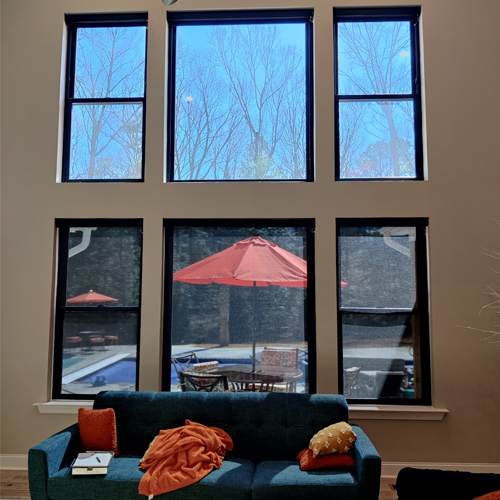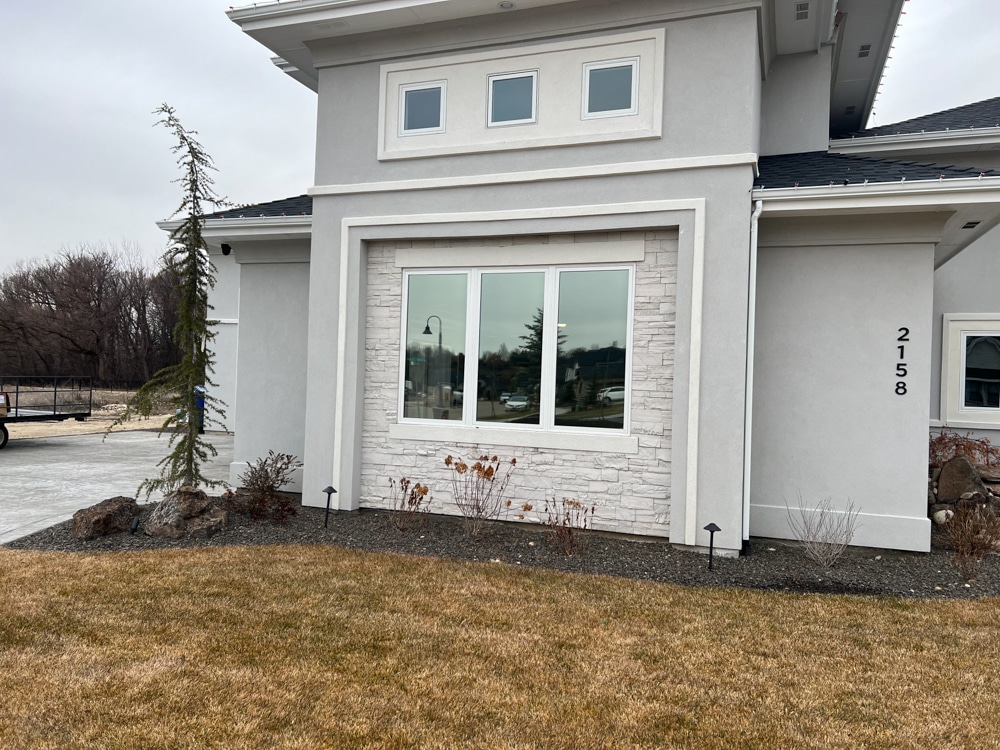Residential Window Tint: Shield Your Furniture from UV Damage
Residential Window Tint: Shield Your Furniture from UV Damage
Blog Article
Just How Residential Window Tinting Boosts Your Home's Energy Performance
Residential window tinting provides an engaging remedy for home owners looking for to improve power performance within their home. By using specialized movies to windows, it efficiently decreases heat transfer, therefore stabilizing interior temperatures and lessening the requirement for extreme home heating or cooling. This not only reduces energy consumption but likewise provides a much more comfortable setting by minimizing glare. Nevertheless, comprehending the nuances of exactly how tinting jobs and choosing the proper type for your home can be critical. Oddly, what elements should one consider before making this financial investment?
Comprehending Home Window Tinting
Comprehending home window tinting is crucial for property owners seeking to boost both convenience and energy effectiveness in their living areas. Residential Window Tint. Window tinting entails the application of a thin movie to the interior or outside surface of glass windows. This film can dramatically regulate the quantity of sunshine and warm that gets in a home, therefore affecting indoor climate conditions
There are numerous sorts of home window tinting films available, each with unique buildings. Colored films absorb solar energy, while reflective films deflect it away from the glass surface area. Ceramic films provide a balance of exposure and heat denial, making them a preferred selection amongst homeowners. The performance of window tinting is commonly gauged by its Visible Light Transmission (VLT) portion, which indicates just how much light can go through the film.
Benefits of Power Effectiveness
Home window tinting not just enhances aesthetics however additionally plays a substantial function in improving power performance within residential rooms. By minimizing warm transfer through home windows, colored films develop an extra stable indoor environment, which can lead to significant reductions in energy consumption for heating & cooling. This power efficiency translates right into lower utility expenses, supplying house owners with substantial lasting cost savings.

Additionally, window tinting enhances the comfort of living areas. By minimizing glare and obstructing hazardous UV rays, colored windows develop an even more pleasant atmosphere, which can bring about enhanced health for passengers. The security against UV rays additionally aids preserve furnishings and floor covering from fading, adding to the longevity of house things.
How Tinting Functions
Tinting movies operate with a combination of sophisticated materials and technologies created to control the quantity of solar energy entering a home. Largely made up of polyester, these films typically integrate metallic or ceramic fragments that reflect and soak up warmth. This twin ability enables them to significantly minimize the penetration of ultraviolet (UV) rays and infrared radiation while permitting visible light to go through.
The performance of window tinting is measured by its solar heat gain coefficient (SHGC), which shows just how much solar energy is transmitted via the home window. Reduced SHGC values are preferable as they represent higher heat denial. Additionally, window tints can include a variety of tones, permitting homeowners to tailor their aesthetic preferences while enhancing energy performance.
Furthermore, these films act as an obstacle, stopping warm loss during chillier months by mirroring interior warmth back into the home. This thermal insulation effect enhances the air conditioning benefits acquired throughout warmer months, adding to a well balanced indoor climate year-round. By handling solar power successfully, residential window tinting not only enhances convenience however likewise plays an essential duty in reducing energy intake and lowering energy expenses.
Choosing the Right Color

There are various kinds of home window films readily available, consisting of colored, metalized, and ceramic. Ceramic films give excellent warmth control without jeopardizing visibility and are highly resilient, making them a preferred option.
Noticeable light transmission (VLT) is an additional critical element, as it shows the quantity of all-natural light that can go through the colored glass. Home owners must select a color with a VLT that complements their illumination choices while still providing adequate glow reduction.
In addition, analyzing the solar heat gain coefficient (SHGC) can help identify just how well a color can obstruct warmth from sunshine. A reduced SHGC shows far better warm control, ultimately enhancing energy performance.
Installation and Upkeep Tips
Appropriate installation and upkeep are important parts in maximizing the benefits of domestic window tinting. To achieve optimum outcomes, it is a good idea to hire a certified specialist for installation. This makes sure that the tint is used properly, preventing air bubbles, wrinkles, or imbalance that might endanger efficiency. Experts additionally use specialized devices and techniques, which can improve the sturdiness and efficiency of the tint.
Adhering to installment, upkeep is vital to prolong the life of the home window click this movie. It is advised to wait at the very least 30 days prior to cleaning up the tinted windows to allow the sticky to heal totally.
Addressing these problems quickly can protect against additional damages and maintain energy effectiveness. By sticking to these setup and maintenance ideas, house owners can guarantee their window tinting proceeds to give substantial energy financial savings and convenience for years to come.
Verdict
To conclude, residential window tinting works as an effective solution for boosting energy effectiveness within homes. By reducing warmth transfer and blocking dangerous UV rays, window films add to lower power intake and boosted interior convenience. The selection of proper tinting materials, together with appropriate installation and upkeep, further maximizes these benefits. Ultimately, home window tinting represents a sustainable investment that not just lowers utility expenses yet additionally advertises a comfortable living environment throughout the year.
Window tinting involves the application of a thin film to the inside or outside surface area of glass windows. By lowering warm transfer through windows, tinted movies develop a much more steady interior climate, which redirected here can lead to considerable reductions in energy consumption for heating and cooling.The effectiveness of home window tinting is determined by its solar warmth gain coefficient (SHGC), which shows how much solar power is transmitted with the home window. By handling solar power efficiently, household window tinting not just enhances comfort however also plays an essential role in minimizing power consumption and reducing utility bills.
By decreasing warm transfer and blocking dangerous UV rays, window movies contribute to lower power usage and enhanced interior comfort.
Report this page